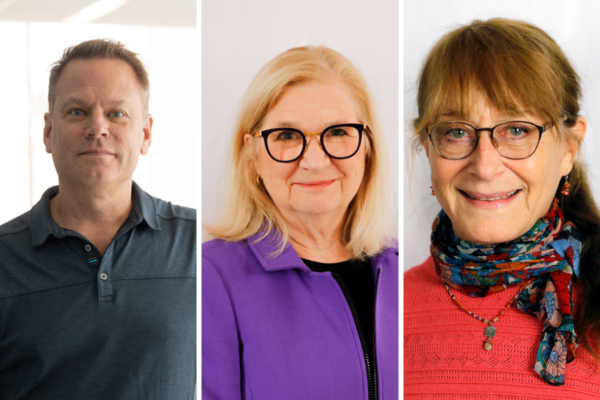AUSTIN, Texas — Three faculty members from The University of Texas at Austin have been elected to the 2024 American Association for the Advancement of Science (AAAS) Fellows class. AAAS fellowships are a distinguished lifetime honor in recognition of distinguished and continuing achievements on behalf of the advancement of science or its applications.
Molecular biosciences professor Ken Keiler, sociology professor Chandra Muller and anthropology professor Arlene Miller Rosen were awarded the fellowship honors for last year. The 2024 Fellows class of 471 includes scientists, engineers and innovators spanning all 24 AAAS disciplinary sections.
The 2024 class joins the ranks of noted fellows such as Alondra Nelson, the acting director of the White House Office of Science and Technology Policy; Mae Jemison, the first Black woman to go to space; Steven Chu, 1997 Nobel laureate in physics who served as the 12th U.S. Secretary of Energy; and Vint Cerf, who co-designed the TCP/IP protocols and the architecture of the internet and received the U.S. Presidential Medal of Freedom.
“These exceptional scholars are advancing the frontiers of science at UT Austin,” said David Vanden Bout, interim provost. “Whether investigating molecular mechanisms, educational outcomes or human-environmental relationships, each fellow demonstrates remarkable scholarly excellence and a commitment to addressing complex challenges facing society. Their work pushes boundaries while fostering trust in science throughout the communities they serve. I am proud to see them honored for their significant contributions to their fields and to the scientific community.”
Ken Keiler, professor of molecular biosciences, focuses his research on understanding how protein quality control is maintained when living organisms are in a state of healthy, stable functioning known as homeostasis, or when they are under stress. He uses this knowledge to develop antibiotics and tools for basic research. He received his Ph.D. in biology from Massachusetts Institute of Technology. After postdoctoral studies in France and at Stanford University, he established his own lab at Penn State University in 2002. He moved his lab to The University of Texas at Austin in 2024. He is a fellow of the American Academy of Microbiology.
Chandra Muller is a sociologist whose current research focuses on how education shapes population health. She is currently leading two nationally representative, longitudinal studies — High School and Beyond (HS&B) and the National Longitudinal Study of the Class of 1972 (NLS-72) — that follow people first interviewed as high school students into later life to better inform interventions that could improve cognitive function and prevent or delay Alzheimer’s disease and other forms of dementia. She received her Ph.D. from the University of Chicago. She is a member of the National Academy of Education and the Sociological Research Association, and she is a fellow of the American Educational Research Association.
Arlene Miller Rosen is a professor of anthropology and environmental archaeology, working on human-environmental relations during later prehistory and in early complex societies in the Mediterranean Levant, China, Mongolia and New Mexico. Her research examines how ancient societies responded to climate change across different periods, analyzing the complex interplay between environmental shifts and human adaptation strategies through multiple analytical approaches including historical records, microbotanical analysis and geomorphological studies. She is the author of “Civilizing Climate: Social Responses to Climate Change in the Ancient Near East” and numerous journal articles dealing with issues of human adaptations to climate change and human impact on the environment. She serves as associate editor for the journal The Holocene and sits on the editorial board of Journal of Anthropological Archaeology.
“This year’s class of fellows is the embodiment of scientific excellence and service to our communities,” said Sudip S. Parikh, Ph.D., AAAS chief executive officer and executive publisher of the Science family of journals. “At a time when the future of the scientific enterprise in the U.S. and around the world is uncertain, their work demonstrates the value of sustained investment in science and engineering.”




